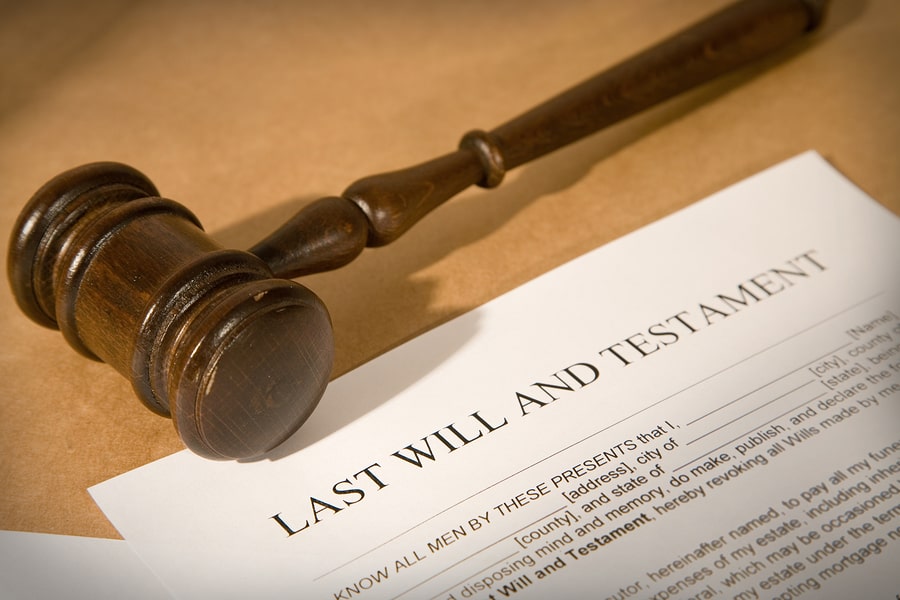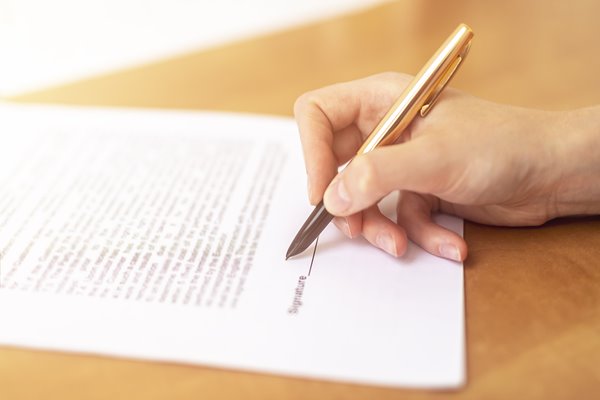Writing your will
You have three choices for making a will:
- Solicitors are suitable for everyone. They’re the best choice for high-value, high-complexity estates, when you require additional legal services such as Power of Attorney, or when making sure you get your will right first time.
- Professional will writers offer a hassle-free experience that’s cheaper than a solicitor but only offers wills. They’re excellent with good for low- to medium-value estates, and minimise the risk of getting it wrong (which might lead to a legal challenge).
- Do it yourself using either a store-bought, ‘fill-in-the-blanks’ template or writing it by hand (yes, you can even write a will on a napkin, if you’re feeling brave). This is dicey, as a valid will must meet certain requirements, and its wording should be unambiguous and clear.
Making sure your will is valid
The last thing you want, when you’re gone, is for your will to be challenged. It’s the sort of experience that creates uncertainty for loved ones at a very difficult time. In the worst cases, it can bring about years of feuding and family fall-outs.
To avoid your will being contested later, double-check it meets the legal requirements – however you choose to make it. It should be clear that this is a will. And that these are your latest, most- up-to-date, final wishes.
A valid will must be:
- Written when you’re 18 years old or over
- Made while you have mental capacity – you must understand what making a will means
- Made in writing
- Made voluntarily
- Signed by you in the presence of two witnesses
- Signed by two witnesses in your presence
What to put in your will
Whether you sit down with a legal professional or think it all out yourself, to make a will:
-
Start with your estate
Your estate is everything you own. Your home, your possessions, your money, and your assets. You should have a clear idea of your whole estate, and place it in the will where necessary – a solicitor or will writer can advise.
Your debts are also part of your estate. When you pass away, these are paid off first. What remains is then divided up according to your wishes.
These days, your estate can also include your social media accounts. Each platform has a process letting you nominate someone to take your account over when you’re gone. Here are some useful links:
-
Choose who gets what
The people who inherit from your estate are known as your beneficiaries. Be specific where necessary in your will. Don’t leave everything open to interpretation (and open to a challenge).
It’s entirely up to you who gets what – but consider the tax implications. You don’t want your family losing out on much-needed security. This is where will-writing can get a bit tricky, so it’s best to get legal advice even if you intend to write your own will.
It’s not like in the movies. Your beneficiaries are unlikely to all gather in a solicitor’s office to hear the reading of the will.
Once probate is complete and the will is determined as valid, the executor will notify them about the inheritance due. Your beneficiaries must be notified within three months, but the sooner the better. They can then respond, ask questions, or contest the will if they believe it’s invalid.
-
Think of the children
If you have kids, think about how your will provides for your children when you’re gone. Your will should nominate a guardian – someone to look after the kids if both parents pass away.
Children can’t receive an inheritance until they’re at least 18 years old or over. You may increase this, commonly to 21 or 25 years old.
In the meantime, your child’s inheritance is placed in a trust overseen by a trustee of your choosing. So, choose wisely and plan for financial arrangements until they come of age.
-
Choose a responsible executor and witnesses
You may name up to four executors, and it’s best to name at least two. That way, you have a substitution if your first choice is unwilling or unable to act. Choose an executor who is responsible, organised, and fair. There’s a lot of work involved, so many people name their partner or a solicitor.
Choose your two witnesses on a similar basis. Reliable, honest, and financially independent. Witnesses may not benefit from your will (and any request in the will is ignored). If the will is later challenged, it’s the witnesses’ job to attest you made the will ‘of sound mind’ and your own choice.
Usually, all of you must be in the same room when watching each other sign and date the will. However, due to the pandemic, wills may be witnesses through a door or window, or by video-call.
Executors and witnesses must be 18 years old or over and mentally capable.
What not to put in your will
There are a few assets you shouldn’t (or won’t need) to put in your will.
-
Joint bank accounts and properties
Joint bank accounts and joint tenancy properties will automatically revert to the surviving partner. Your will has no impact on this process.
-
Business assets
Depending on the business structure, you probably won’t be able to gift assets without the say-so of the surviving business partners.
-
Life insurance and pensions
Your life insurance and pension pot should already name a beneficiary, so there’s no need to add these to your will.
-
Specific conditions and wishes
Your will should be actionable instructions and encouragements, but you can’t legally oblige someone to marry in order to inherit.
-
Your dream funeral procession
You may dream of a boulevard of mourners led by a top-hatted officiant and black-clad pallbearers. But avoid setting out funeral arrangements in your will. Probate can take several months, meaning your funeral service may be over before your wishes are even revealed.
-
Things you don’t own
If it’s not yours, you can’t leave it as a gift. It may sound obvious, but you’d be surprised how many people try!
Storing your will
You don’t need to legally register a will (although there are services offering this) – but you must keep the original copy safe.
You can keep it at home, in a bank, or leave it with your solicitor. You can also use a will storage company or the London Probate Service.
Tell your executor, and anyone else who may need to know, where your will is stored. They’ll need it to apply for a grant of probate.
Changing your will
Making a will is an important step. So, you want to get it right first time.
However, it’s a good idea to update your will using a codicil or making a new one whenever you experience a big change in life circumstances, like getting married, buying a house, or having a baby.
You may also want to make sure someone doesn’t inherit from your estate. If you don’t want someone to inherit, don’t leave them out of your will (forcing you to make a new one later). They could mount a challenge suggesting you forgot to include them. Instead, grant them a token gift that shows you didn’t accidentally leave them out.
Be careful about adding too many codicils – a legal document expanding on your original will – as they can muddy the waters, making your instructions unclear and open to a challenge. If you have too many, consider writing a new will from scratch.
Writing your will
Now you’re ready to make your will, let The Law Superstore help you find and compare solicitors and will writers near you – completely free.
Start comparing now.








